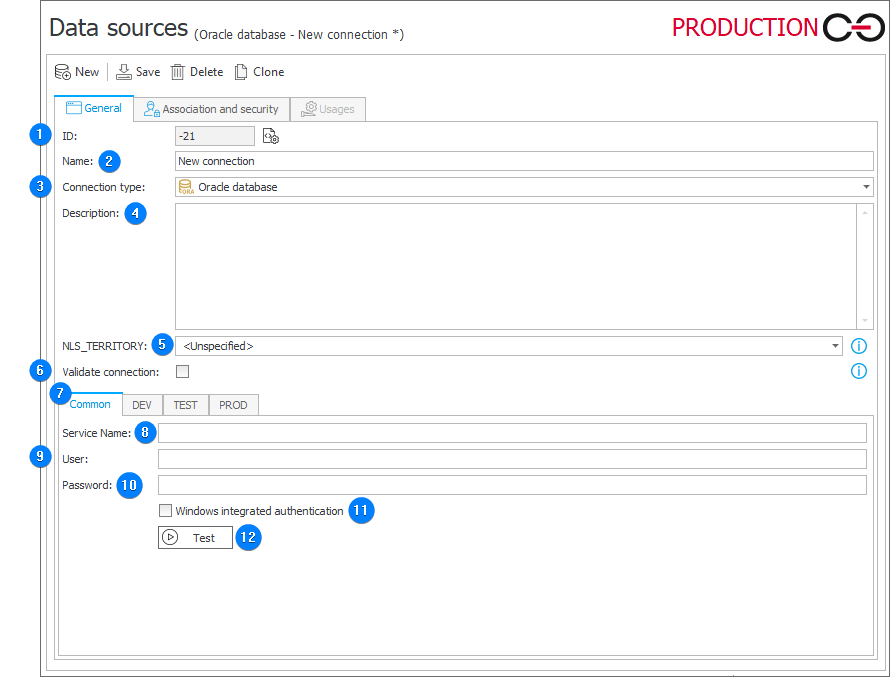Oracle database
The source allows you to retrieve data from the Oracle database.

1. ID
The data source identifier (if the value is smaller than "0", the source has not been saved in the database yet).
2. Name
Name of the data source entered by the user.
3. Connection type
The field allows you to specify a connection type. You can choose from: MSSQL Database, Oracle Database, Exchange Server, OneDrive, SharePoint Site Collection, REST Web Service, and SOAP Web Service.
4. Description
Description of the data source entered by the user.
5. NLS_TERRITORY
In most cases, defining the parameter is not needed. Explicitly setting the NLS_TERRITORY parameter for each session with the Oracle database server might be necessary if the locale of the WEBCON BPS server is different from the NLS_TERRITORY parameter set by the Oracle server at database or instance level.
6. Validate connection
A connection string parameter for Oracle database. Setting the ValidateConnection parameter to "TRUE" causes the connection cache to test every connection it retrieves against the underlying database.
7. Environment
Defines the behavior of the data source in particular environments. The Common tab sets the default parameters that are to be used across all three environments (DEV/TEST/PROD). The tabs dedicated to the individual environments can be used to enter custom parameters. In such case, it is necessary to check the Break inheritance checkbox (this will override the settings specified in the Common tab) and then enter the desired connection settings.
8. Service name
The name of the Oracle service.
9. User
An Oracle user. For the Windows authentication the field is grayed out.
9. Password
An Oracle user's password. For the Windows authentication the field is grayed out.
10. Windows integrated authentication
The parameter allows you to specify whether to use an Oracle or a Windows authentication.
11. Test
Tests the connection to the Oracle server.